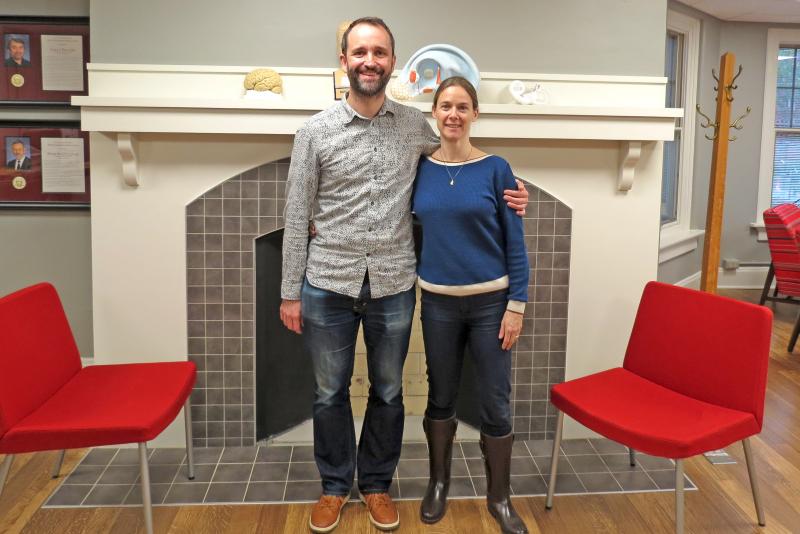
Congratulations to Drs Björn Köhnlein and Marie-Catherine de Marneffe for receiving National Science Foundation CAREER awards, NSF's most prestigious award directed toward early-career faculty.
Dr. de Marneffe’s award (CAREER: Drawing inferences for human-like language understanding) explores the automatic identification of inferences that humans systematically draw from language beyond the literal meaning of the words. For example: if you ask a friend to go to lunch and they reply: “I had a very large breakfast”, you infer that they are not hungry and probably don’t want to go. This project targets a diverse set of inferences: inferences about sentiment, agreement and speaker commitment (whether speakers are committed to the truth of the events they describe). The project aims to study the syntactic, semantic, pragmatic and prosodic factors that play a role in deriving these inferences from both a theoretical linguistics and a practical natural language processing (NLP) perspective. As Dr. de Marneffe says, “it’s an exciting time to work in NLP, where machine learning techniques are now achieving remarkable performance on automatic natural language understanding. However, to achieve robust and human-like understanding, we need to analyze what representations of language machines are learning and assess what they are really understanding."
Dr. de Marneffe also intends to use the grant to support graduate students and to develop demos and games with a dual purpose: outreach at the Language Pod at COSI (our local science museum) and the gathering of data which will test the limits of current machine understanding. She adds, “I am grateful to my colleagues in the department and in the Language Pod for their support, and to Jim for his help with IT. I thank the Graduate School for the tuition fee match, which will allow more students to be trained, the colleagues who provided great feedback on my application, and the NSF program officers who have always been available and very supportive.”
Dr. Köhnlein's award (CAREER: Mechanisms of Sound Change in Continental West Germanic) investigates interactions of vowels and consonant voicing in endangered, underdescribed language varieties in Germany and the Netherlands. “This is a great opportunity for me to further pursue my research on the dynamics of sound systems, as it will allow me to combine detailed language documentation with linguistic theory,” Dr. Köhnlein explains. “I am very thankful for all the support that the department and the college have given me while writing my grant, regarding the structure, content, and budget of my project. This input was invaluable in developing my proposal.”
The varieties that will be studied in detail in this project show a specific type of interaction between vowel duration and voicing of a following consonant. This is somewhat comparable to English, where the vowel in the word feed is longer – before a voiced /d/ – than the vowel in the word feet – before a voiceless /t/. In the language varieties that Dr. Köhnlein intends to study, such interactions have led to typologically unusual contrasts between different types of vowels that are only found in a few languages in the world. Certain dialects have even developed a tonal contrast, comparable to what we find in many African or Asian languages. He adds, "gaining a better understanding of dynamics of these interactions will help broaden our knowledge of how sound systems can change over time, and at the same time inform us on what the limits of such changes are.”
